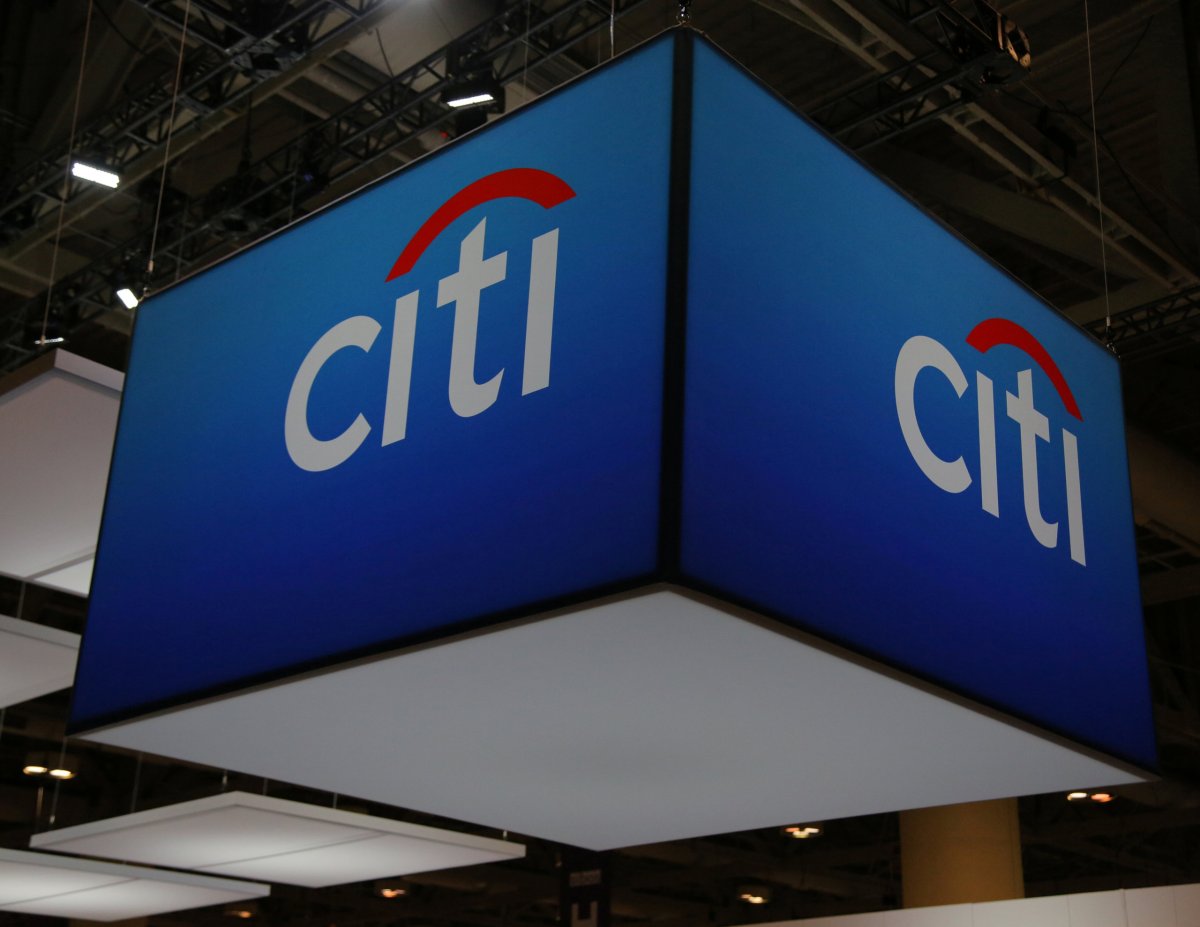By Imani Moise and Siddharth Cavale
(Reuters) – Citigroup Inc reported a surprise drop in quarterly revenue on Monday, as extreme volatility in financial markets toward the end of the year hurt its fixed-income trading business.
Revenue from that business fell 21 percent in the fourth quarter, with Citigroup citing widening credit spreads and the market correction in December.
Banks with big trading businesses benefit when markets move, because it prompts customers to buy and sell securities. But sudden bursts of volatility can be damaging, leading customers to avoid trading and also hurting banks’ ability to hedge their own market exposures.
Overall revenue fell 2 percent to $17.1 billion, below Wall Street expectations of $17.6 billion, according to IBES data from Refinitiv.
Shares of the third-largest U.S. bank fell nearly 1.6 percent to $55.80 in early trading after it reported results.
“A volatile fourth quarter impacted some of our market sensitive businesses, particularly fixed income,” Chief Executive Officer Michael Corbat said in a statement.
Stock markets gyrated wildly in December and yield spreads, or the additional premium investors demand for holding corporate bonds over safer U.S. Treasury securities, also widened significantly in the fourth quarter as investors globally sharply retreated from risky investments.
The surprise revenue decline hurt Citigroup’s effort to hit an efficiency target set by Corbat, though it exceeded his goal for returns on tangible common equity (ROTCE).
The bank reported an efficiency target of 57.4 percent for 2018, just shy of Corbat’s 57.3 percent goal. Its ROTCE of 10.9 percent last year was above the 10.5 percent target.
A lower efficiency ratio means a bank is better at managing its costs relative to revenue, while ROTCE is a widely watched measure of how well a bank uses shareholder money to generate profits.
Investors have been pushing Citigroup to prove it can grow revenue and profits, rather than simply returning capital through share buybacks. Skepticism around whether it has the potential to grow its underlying businesses hangs over its share price, with Citi trading at a lower valuation than rival U.S. banks.
Last week the bank inked a deal with one of its largest shareholders, ValueAct, granting the activist investor more access to its board.
Overall, Citigroup topped Wall Street expectations for earnings per share, thanks largely to cost cuts.
Excluding a one-time tax related gain, quarterly profit rose to $4.2 billion, or $1.61 a share, in the quarter ended Dec. 31, from $3.7 billion, or $1.28 a share, a year earlier.
Analysts had expected a profit of $1.55 per share, according to IBES data from Refinitiv.
Citigroup’s costs fell 4 percent, with the bulk of the declines coming from a unit that is still shedding assets left over from the 2007-2009 financial crisis.
Earnings per share were also boosted by an 8 percent decline in outstanding stock as Citigroup bought back 74 million of its own shares.
Even though Citigroup returned more than 100 percent of its annual earnings through dividends and stock buybacks, the stock is still trading below tangible book value, Oppenheimer analyst Chris Kotowski noted in a report after Citi’s earnings release.
Citi is the first of the major U.S. banks to report fourth-quarter results. Wall Street majors JPMorgan Chase & Co, Bank of America Corp and Goldman Sachs will report later this week.
Its results may not be a good bellwether for most U.S. banks, though, because Citigroup gets roughly half of its revenue from outside the United States.
(Reporting by Imani Moise in New York and Siddharth Cavale in Bengaluru; Editing by Arun Koyyur and Lauren Tara LaCapra)



















